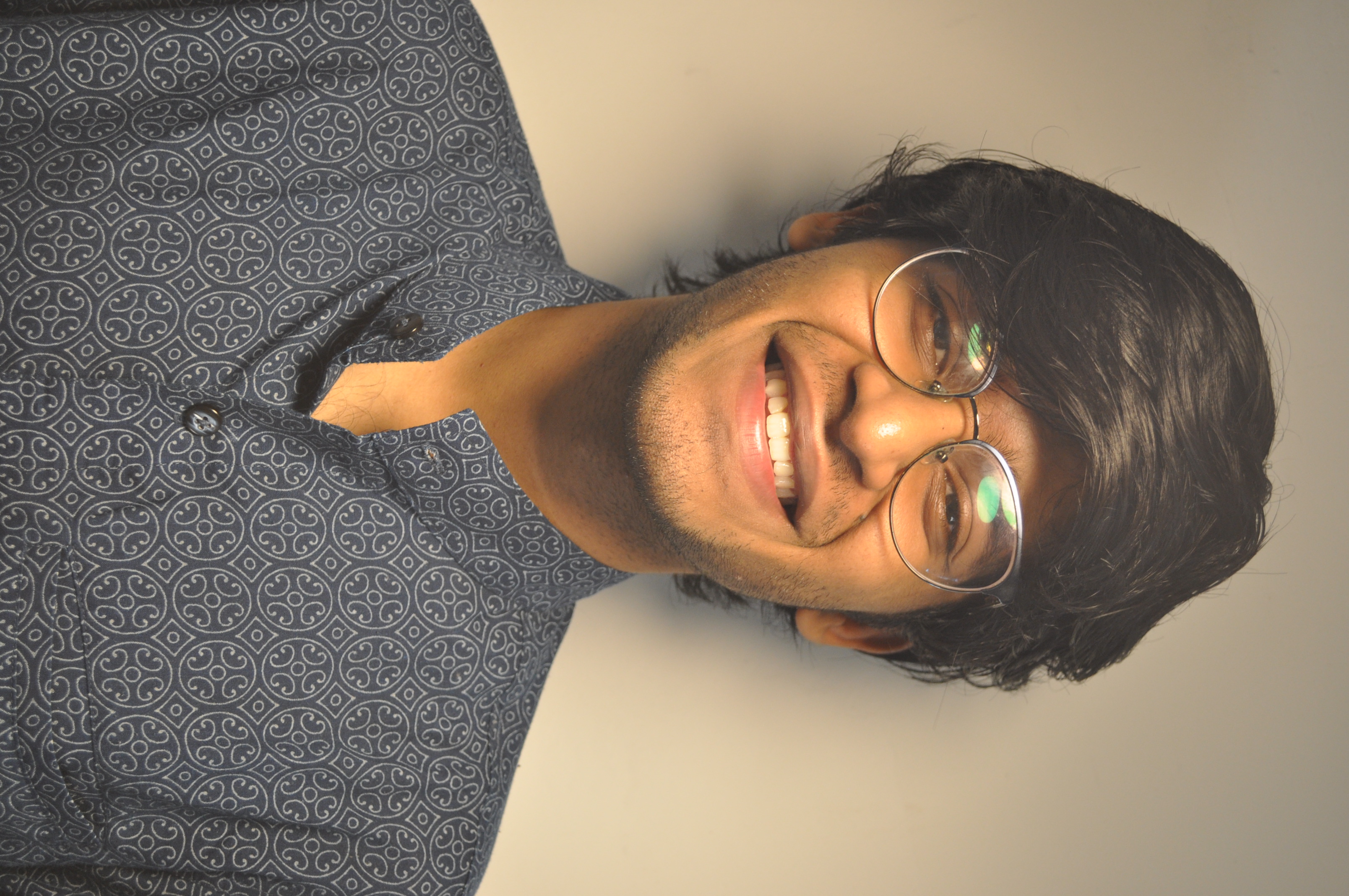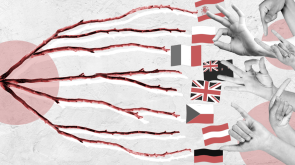
Cognitations: a podcast about Cognitive Science and its real-world implications
How does the human mind work? Tanay Katiyar and Jay Richardson explore this question with Cognitations: a podcast about cognitive science. In the context of a relaxed interview, each episode introduces a scientist, their career, their research subject and how it influences our daily lives. The two masters students in cognitive science at ENS-PSL present this new podcast.
Can you introduce yourself ?

Tanay Katiyar: I am a master’s student of cognitive science at ENS-PSL (Cogmaster) and a visiting student at the Institute of Evolutionary Medicine, University of Zurich (UZH). Broadly, my current work revolves around exploring: a) the cognitive mechanisms that determine & regulate our mental health in digital social environments; b) the social determinants of mental health of contemporary forager populations.
Jay Richardson: I am also a student of cognitive science at ENS-PSL
and plan to start a PhD in the fall. I am broadly interested in philosophical questions about the mind and work more precisely on memory and imagination.

How did the idea for this podcast come about?
Tanay: Jay and I have always had interests in multiple fields outside our disciplinary training. Thus, both of us share a history of self-educating ourselves. Jay started out as a philosophy student before studying psychology. Similarly, I was training as an economist during my undergraduate studies, but was also interested in biology and psychology. To further develop these interests, we extensively listened to different podcasts (The New Books Network, Philosophize This!, The Huberman Lab Podcast etc.) and Youtube videos (e.g. Kane B.’s Youtube channel, the Consciousness Live! interview series, Robert Sapolsky's Online Lectures).
Thus, when Jay and I first met, we realised that developing a podcast about cognitive science could facilitate the self-education of other people like us who aren’t commencing their training in cognitive science or who don’t have the financial means to do so. It can also make the broader public realise the real-world implications of cognitive science. Thus, we decided to take up this project of developing a cognitive science podcast.
Through this project, we also wanted to present a personal aspect of our guests and illustrate their scientific journey. For instance, we wanted to ask questions like: how did they get interested in their research question? What was their academic journey like? The idea was to humanise our guests and to debunk the idea that successful researchers always have a linear career trajectory (i.e. someone has a Eureka moment/is always certain about what they want to do and then decides to become a scientist). We hope that this aspect of our project will inspire some of our listeners to become scientists down the line whilst sharpening their expectations about the journey thereto.
What is the aim and target audience of this podcast? What is the larger ambition of this podcast?
Jay: As Tanay says above, the podcast has an educational aim. Thus, our hope is that anyone who is interested in the inner workings and architecture of the human mind can learn something new from each episode. To manifest this hope, we have designed the podcast in a way that facilitates a relaxed and honest conversation with our guest around a particular topic.
Tanay: The larger ambition of this podcast project is to demonstrate how cognitive science bears on everyday life. In other words, we hope to impress upon our listeners the applied value of cognitive science. Cognitive scientists have many contributions to make when it comes to education, therapy, the design and efficiency of public policies, etc. If our listeners are made aware of this, they might be motivated to further educate themselves on the psychological factors that tie into an issue they are interested in or care about.
How did this podcast project become a reality?
Jay: Tanay and I started to come up with a blueprint for the project some time ago. Initially, we wanted the project to take on a life of its own as a venue for cogmaster students to communicate their interests to the world. In attempting to accomplish this, we reached out to many students who ended up contributing in crucial ways. So, even if we have been coordinating the realisation of the podcast, we never would have managed to get it off the ground without the help of our classmates.

Tanay: Ella Bergru designed the logo, Matthieu Fraticelli did the editing, Guillaume Coudriet helped set up the social media and communication aspects of the project, Grégory Fiorio came up with the name of the podcast, Olivier Albert, Thelma Samuel and Robin Baradel made the jingles and Thomas Beuchot prepared and carried out the interview for the second episode.
We are also grateful for the guests we have had up until now. They put their trust in us and took some time from their busy schedules. Much thanks to them and to our future guests!
What do you particularly like about cognitive science? Why did you personally choose to study it ?
Tanay: I was fascinated by the interactions between human psychology and different technologies (e.g. smartphones, smartwatches, robots etc.). To understand this interaction properly, I thought that developing an understanding of these two components individually (psychology and technologies) would be a useful starting point. Thus, I chose to study cognitive science to delve deeper into human psychology.
Interestingly, owing to its interdisciplinarity, I soon found out that cognitive science had a lot to say about different technologies as well. This is my favourite aspect of the discipline i.e. its interdisciplinarity.
Jay: I have always been interested in philosophical questions pertaining to knowledge, the relationship between the mind and the body, ethics and the like. Because some domains of philosophy in which these topics are tackled interact heavily with cognitive science, I was exposed to it in a somewhat progressive nad natural way. Once I was fully made aware of the relevance of cognitive science to philosophy, I quickly realised that I wanted to understand its methods and, eventually, to contribute to it.
Just like Tanay, I highly value the idea that we can integrate knowledge and lead fruitful collaborations across different disciplines. This aim is inscribed into the very DNA of cognitive science.
To support the Cognitations podcast and receive updates about upcoming episodes, you can subscribe to the podcast on Spotify and follow Cognitations on twitter @cognitations.



